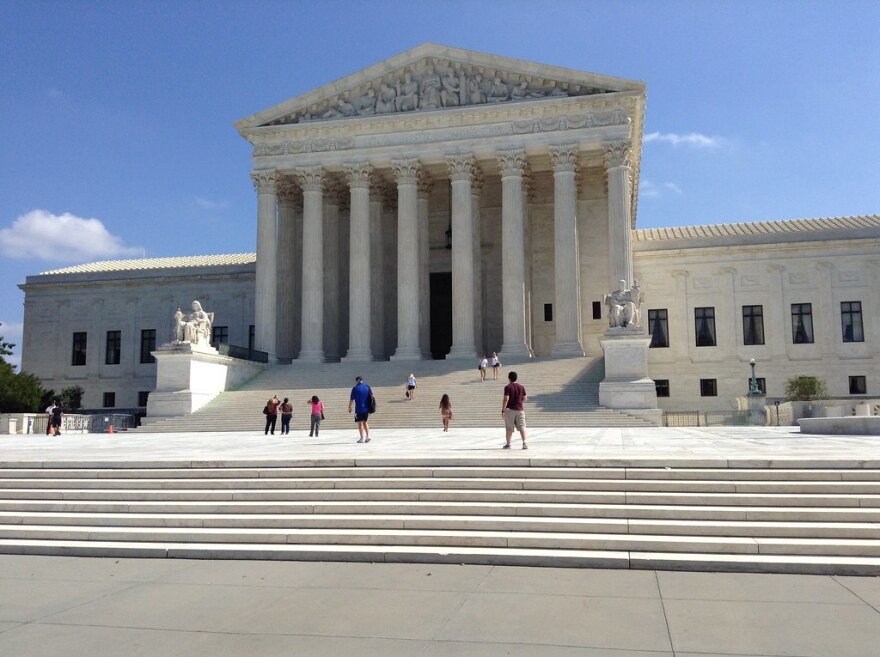The US Supreme Court will hear from a transgender Michigan woman Tuesday who was fired because of her decision to transition.
Aimee Stephens worked at the Harris Funeral Home in metro Detroit for six years. When she presented her employer with a letter informing him of her plan to begin presenting as a woman, she was fired.
ACLU attorney Jay Kaplan is representing Stephens. He said the court will consider whether the Civil Rights Act protects LGBT persons from discrimination.
“Are LBGT people covered under Title VII which prohibits descrimination in employment on the basis of sex,” he said.
The US Sixth Circuit Court of Appeals already ruled in favor of Stephens, fidning that “the unrefuted facts” are that she was fired because “she refused to abide by her employer’s stereotypical conception of her sex.”
Kate Anderson is with the Alliance Defending Freedom, which is representing the Funeral Home. She said the Civil Rights Act does not protect gender identity.
“Sex, when this law was passed, as it does now, does not mean gender identity,” she said.
Anderson said the courts are not the place to expand the Civil Rights Act. She said only Congress should rewrite the law.
“That’s something that, if considered, should be done through congress to add any new categories to a law like that because of the consequences it has, which includes consequences for women in athletics, privacy spaces, and women in employment,” she said.
Jay Kaplan, with the ACLU, said said this case may be as important to LGBT persons as the right to marry.
“Because without Civil Rights protections you can get married on the weekend and you can be fired from your job on Monday when you return to work.”
The Supreme Court will also be looking at two discrimination cases involving gay men who lost their jobs after their employers learned of their sexual orientation.
Kaplan acknowledges that since Justice Gorsuch and Kavenaugh joined the court it has become more conservative. But he said the argument in favor of Stephens is a conservative one.
“Very clear that the comments made by Rost, Aimee’s employer, would constitute gender stereotyping,” he said. “So we think we have a conservative argument about why the court should uphold this decision.”
This is the first transgender civil rights case that has ever gone before the US Supreme Court.

